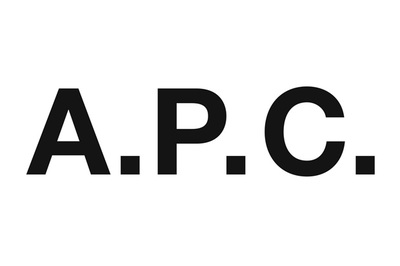今天, 华尔街日报关于张化桥的英文书的书评
June 18, 2013,http://blogs.wsj.com/chinarealtime/2013/06/18/eight-questions-joe-zhang-inside-chinas-shadow-banking/?mod=WSJBlog&mod=chinablog
Eight Questions: Joe Zhang, ‘Inside China's ShadowBanking’
Only five years ago shadow banking in China was a sideshow, away for small firms that have long been ignored by banks to tapcredit. Today it's a fast growing – and evolving – mainstay of thefinancial system, but with little data available it's still poorlyunderstood.
- Enrich Professional Publishing
One of those who has helped shed a little light among theshadows is Joe Zhang, authorof“InsideChina’s Shadow Banking: The Next Subprime Crisis” (EnrichProfessional Publishing, 2013). A former equities analyst andinvestment banker at UBS in Hong Kong, he quit in 2011 to take up aroleat the grassroots of China’s financialsystem,developing microfinance programs to helpthe small firms and entrepreneurs that otherwise have nowhere elseto turn for credit. He stepped down after two trying years,frustrated byregulatory hurdlesand institutional wariness against a type of lending that was onlylegalized in 2008.
Mr. Zhang’s book is part memoir of his time as chairman ofmicrofinance companyWansui Micro Credit inGuangzhou, and part reflection on the need for financial reform inChina. While much of what has been written about China’s financialsystem tends to take a sweeping overview, Mr. Zhang’s account isrefreshingly anecdotal, providing a unique insight into thecreative and sometimes sketchy ways finance works in China on alocal level.
We recently caught up with Mr. Zhang to ask him about financialreform, regulatory roadblocks and where China's subprime riskslie.
You say in the book that Chinese people look down onmicrofinance providers. Why is that?
Because of the official brainwashing in the past six decades thatprivate-sector financing is sneaky, dangerous and disruptive to theexisting system, and that high interest rates are immoral. Theytotally disregard the fact that we deal with subprime customerswhere risks are higher and costs are higher. We as a business needto make adequate returns. Or we will not exist. It is as simple asthat.
The title of your book flags that changes in China'sfinancial system might be sowing the seeds of the next subprimecrisis. How might that crisis play out, and is shadow banking acause or a symptom?
I find shadow banking assets are very safe in general. We manageour own money very carefully. Given the tough regulation, we arenot able to take too much risk even if we want to. But the rapidgrowth of shadow banking reflects on the failure of the much biggerformal banking system. For six decades, financial repression inChina takes the form of regulated interest rates beingsignificantly below inflation. That leads to rapid credit growth.Banks are forced to increase loans rapidly year after year. Butsensible lending opportunities are not growing that fast.Therefore, banks are forced to lower lending standards, leading togrowth of their own subprime lending. Of course, low interest ratessend false signals about the viability of loans.
How does microfinance in China differ from the modelmade famous by Grameen Bank founder MuhammadYunus?
Microfinance in China is subject to widespread prejudice, andunbelievably tough regulations. We would be far better off withouta license. Kerbmarket lenders have more flexibility and higherefficiency. Compared to India and Bangladesh, our average loan sizeis far bigger.
You’ve long been active as a champion of microfinance inChinese. What inspired you to write this book inEnglish?
I find that much of the debate among foreign investors andacademics misses the point. They mistakenly focus on the assetquality of shadow banking, and the risks shadow banking poses tothe whole financial system. But these two issues are not importantin my view. I ask people to focus on the message the rapid growthof shadow banking sends to us. Why is shadow banking growing sorapidly despite a hostile set of regulations? What does it sayabout the monetary policy?
One last reason: I find Chinese policies are increasinglyinfluenced by foreign investors, academics and the Hong Konginvestment community. I want to influence the influential.
You say that the biggest hurdle for microfinance inChina is opposition from regulators. Does that mean microfinance isdoomed? What needs to happen for microfinance to really takeoff?
The Chinese regulators are not alone in discriminating againstmicrofinance firms. Other government departments, the banks and thepublic are equally unfriendly. China needs a cultural revolution onmany things including this issue. I am doing a bit of educationalwork. I am proud to play this role as a citizen.
If China does face the risk of having its own subprimecrisis, where do you think the weakest points in China’s financialsystem are?
I see the real estate bubble as the most likely starting point ofthe crisis, followed by local government fund-raisingplatforms.
You note that China’s money supply has expandedsignificantly more in recent years than that of the U.S. Is thissomething we need to worry about? Given that China’s monthlyconsumer price index numbers remain so low, why hasn’t it fed intoinflation?
In itself, China’s money supply growth being much faster than thosein other countries is not a worry. But at 16-17% year after year,monetary policy in China is very accommodative and inflationary.Credit growth and inflation reinforce each other, becoming avicious circle. That is a pattern for three decades now. We havereached a point where the public has become very sick of it.
China’s regulators regularly exhort the country’s banksto lend more to small and medium-sized firms. Is it fair to assumethat banks can fix the credit drought that small firms in Chinahave long had to deal with?
Big banks have a different cost structure and a naturallybureaucratic decision-making process that is not suitable for smallloans, despite political pressure and their best intentions. That’snot their fault. If you put me in the shoes of a bank president, Iwould do exactly what they do. They have their daily imperatives todeal with. But division of labor is a wonderful thing. Microfinancefirms are born to serve SMEs. The government and the public justneed to give them a longer leash. They will do the job well.
– Dinny McMahon. Follow him on Twitter @Dinny_McMahon
 爱华网
爱华网



